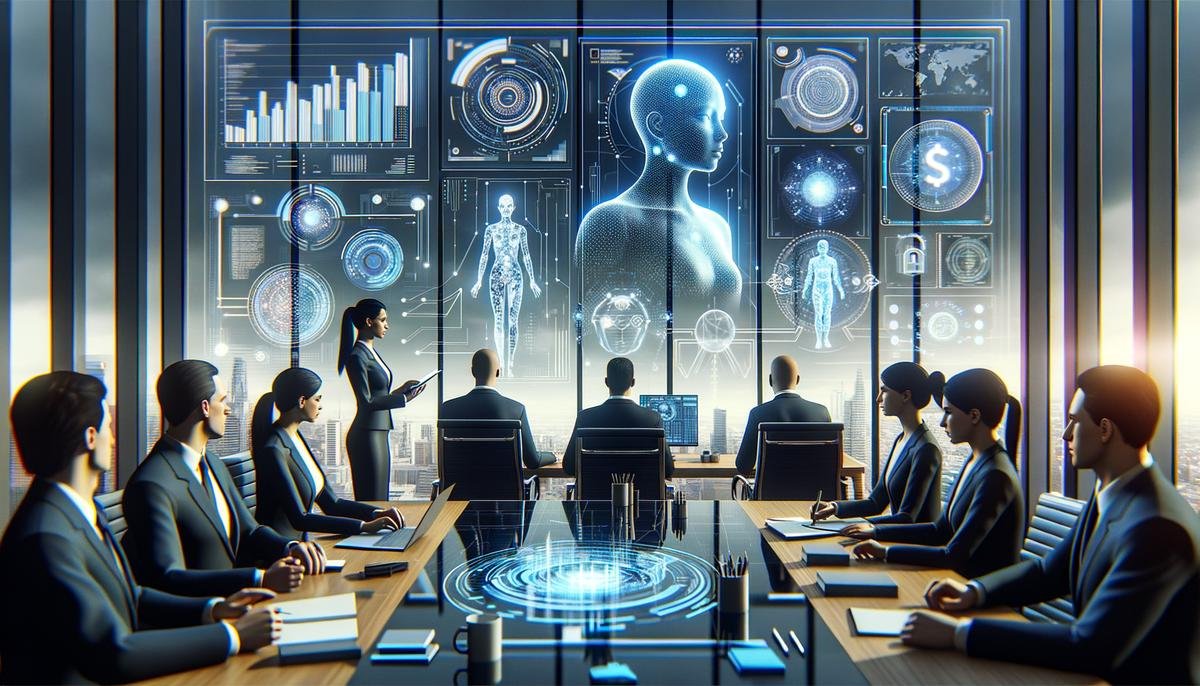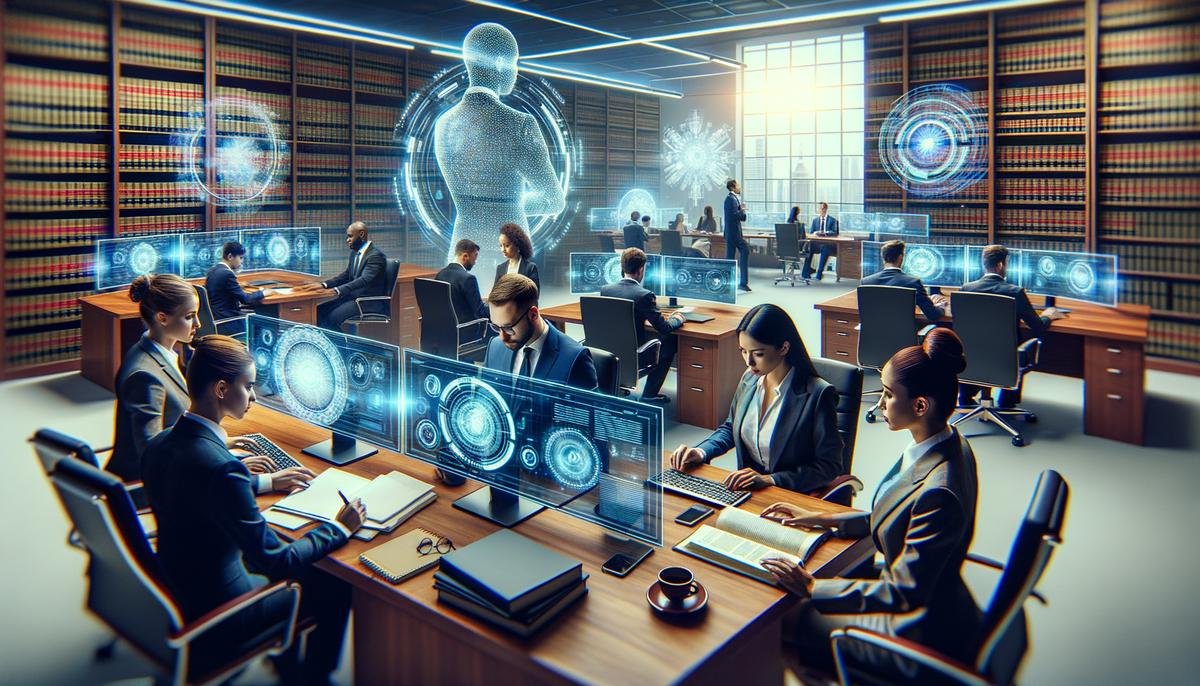AI Integration in Legal Systems
In today's legal landscape, AI is becoming increasingly important. German courts are using AI assistants like OLGA to categorize cases, helping judges focus on complex matters and reducing processing time. In Frankfurt, another AI system called Frauke handles air passenger suits, expediting judgment drafts.
AI's capabilities extend to legal research, quickly sorting through past rulings and legal documents. This efficiency allows lawyers to spend more time on developing arguments. Other potential applications include:
- Predictive analytics for case outcomes
- Contract analysis
- Legal document drafting
While AI isn't replacing judges, it offers data-driven insights to support decision-making. Lawyers are also benefiting from AI co-pilots that provide predictions and analyses. As AI becomes more prevalent in legal systems, it's reshaping how law is practiced and understood.
Challenges and Ethical Concerns
The integration of AI in the legal field brings significant challenges, particularly in ethics and potential biases. Transparency, explainability, and human oversight are crucial to maintain fairness and trust in the system.
AI systems can inadvertently perpetuate biases if trained on data reflecting historical inequalities. To address this, stakeholders need clear insight into AI's decision-making processes. Explainability is also important, ensuring AI can clarify the reasoning behind legal resolutions.
"If we build machines to optimize objectives, the objectives we put into the machines have to match what we want, but we do not know how to define human objectives completely and correctly."
Human oversight remains essential. While AI processes information without emotion or fatigue, humans provide the necessary empathy and discernment for unique cases. The goal is for AI to complement, not replace, human judgment in the legal process.

Potential of AGI in Legal Analysis
Artificial General Intelligence (AGI) holds significant potential for transforming legal analysis. It could streamline legal research, exploring databases and pulling relevant data faster than traditional methods. This efficiency would allow lawyers to focus more on crafting arguments and strategies.
AGI's capabilities in predicting case outcomes could provide valuable insights for litigation strategy. In judicial decision-making, AGI could offer unbiased perspectives based on past cases and established principles, supporting judges in refining their decisions.
The introduction of AGI might reshape legal education and roles within the profession. It could lead to more streamlined court processes and increased accessibility of legal services. However, ethical considerations and human oversight remain crucial to ensure AGI serves as a supporting tool in the human-led legal system.

Regulatory and Governance Frameworks
Developing regulatory and governance frameworks for AI in the legal sphere requires a balanced approach. These frameworks must be comprehensive enough to address potential risks while remaining flexible to accommodate AI's rapid evolution.
Current laws are still in early stages, with some areas cautiously embracing AI. The European Union's AI Act serves as a foundation for eliminating unchecked AI use. International cooperation is essential for effective governance, as AI regulations necessitate a global approach.
Policies must evolve to tackle cross-border complexities, with each country playing its part in a coordinated effort. As AGI development progresses, legislation must be prepared to manage it effectively.
The core of these governance frameworks should prioritize:
- Fairness
- Transparency
- Accountability
The goal is to create a regulatory environment that balances innovation with ethical responsibility as justice and technology become increasingly intertwined.

Impact on Legal Professionals
The integration of AI and AGI is transforming the role of legal professionals. Instead of being buried in paperwork, lawyers are becoming strategic directors of AI-enhanced legal processes. They're learning to use AI's rapid analysis capabilities to benefit their clients while maintaining control over the overall strategy.
Legal education is adapting to include AI literacy. Law schools may soon teach students how to code or interpret AI-generated analysis. These skills will become essential for future attorneys, equipping them for a technology-shaped profession.
Despite AI's capabilities, human judgment, empathy, and ethical reasoning remain irreplaceable. AI augments rather than substitutes these distinctly human traits. Legal professionals are evolving into tech-savvy practitioners who integrate AI capabilities into their work, expanding their potential for innovation and problem-solving in the field of law.

As AI continues to weave its way into legal systems, the balance between technology and human judgment becomes crucial. This integration isn't about replacing the irreplaceable human touch but about enhancing the efficiency and accuracy of legal processes. The journey ahead promises a collaborative future where AI supports and complements the legal profession, fostering a landscape that values both technological advancement and human insight.
- Chesterman S, et al. Artificial intelligence and the problem of autonomy. Nature Machine Intelligence. 2021;3:362-364.
- Shevlin H, et al. The need for social intelligence in artificial general intelligence. Nature Machine Intelligence. 2019;1:246-247.
- Bostrom N. Superintelligence: Paths, Dangers, Strategies. Oxford University Press; 2014.
- Müller VC. Ethics of Artificial Intelligence and Robotics. Stanford Encyclopedia of Philosophy. 2020.
- Russell S. Human Compatible: Artificial Intelligence and the Problem of Control. Viking; 2019.




